#IfOnly Stories
Claire’s Story
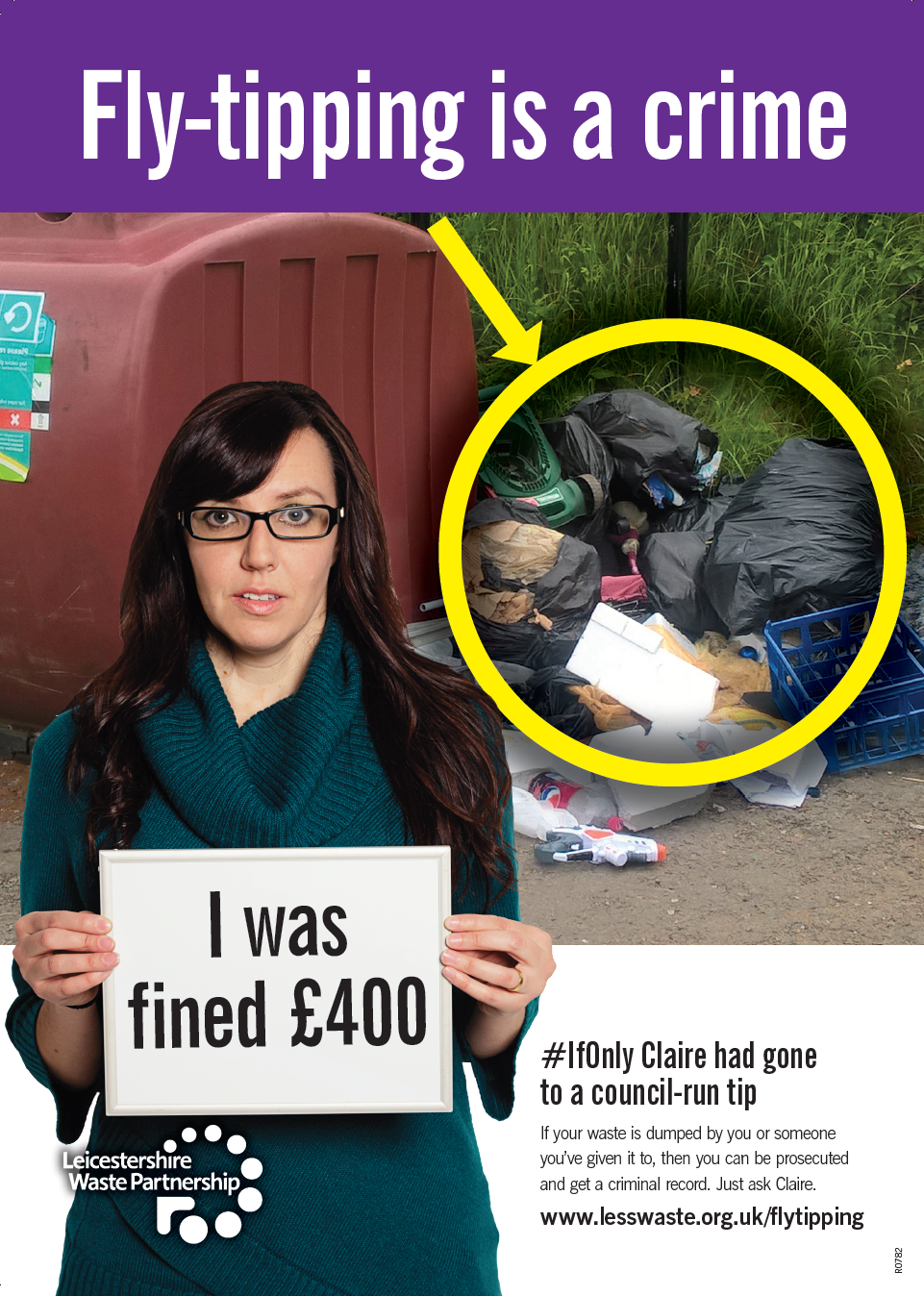
#IfOnly Claire had gone to a council-run tip. She had some glass bottles and a couple of bags of rubbish after a party, so went to the recycling banks at the local supermarket to recycle the glass, and left the rubbish there. Enviro-Crime enforcement officers were watching and Claire was fined £400 for fly-tipping.
Claire didn’t realise that leaving anything next to the recycling banks was actually fly-tipping, even if it’s glass that won’t fit in the bins. Waste can end up being blown around as litter, encouraging rats, maggots, flies and foxes. #IfOnly Claire had driven 10 minutes further up the road to the council-run tip she could have disposed of her general household waste correctly for free.
Leicestershire councils deal with 12,000 fly-tipping incidents per year. If you leave your waste next to a recycling bank you could be fined. Just ask Claire.
Mo’s Story
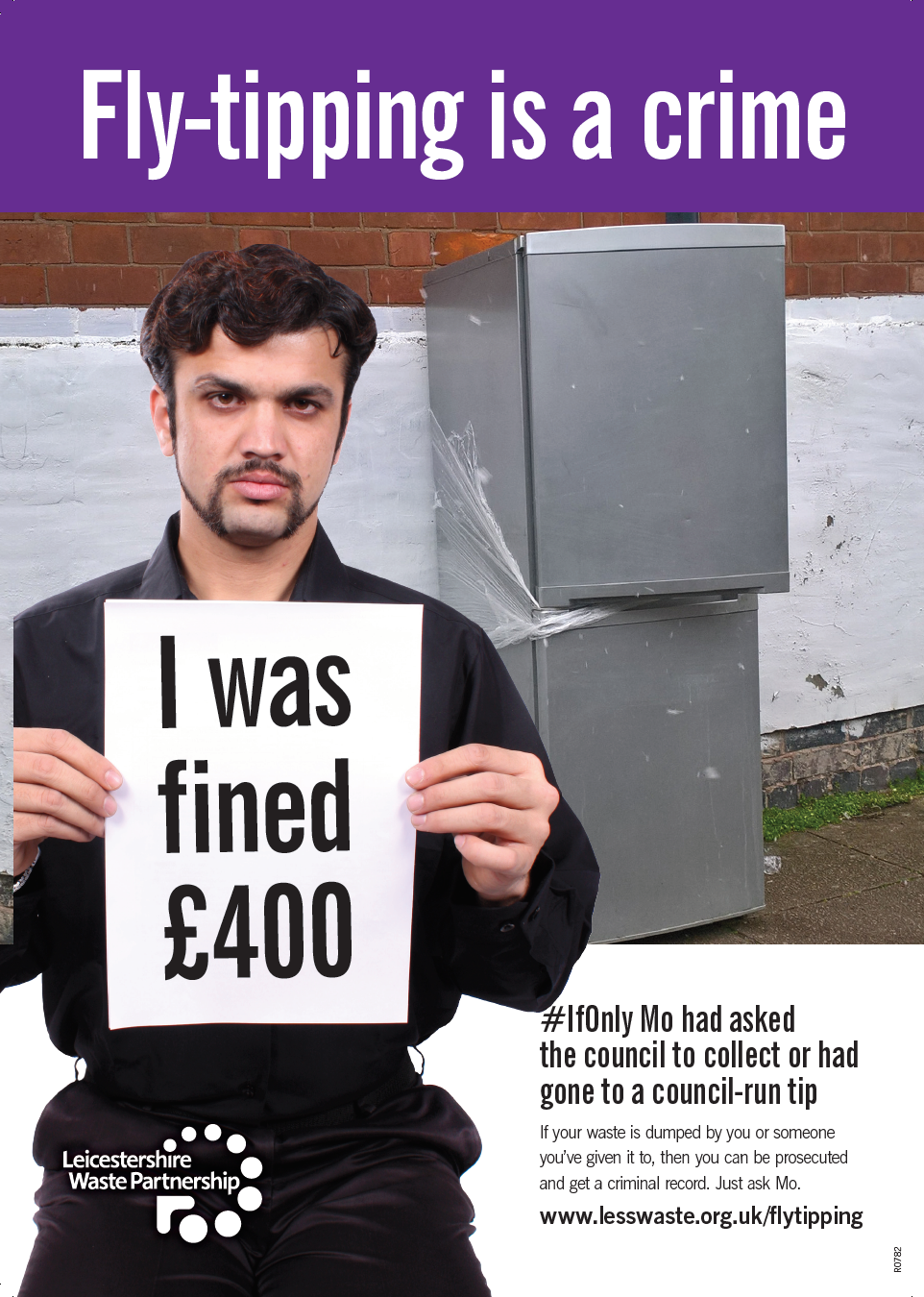
#IfOnly Mo had not left his fridge on the footpath outside his house hoping that the Scrap Metal van would collect it. It was there for a couple of days and his neighbours complained to his Council. Mo hadn’t realised that leaving items on the pavement was fly-tipping and he was fined £400. Mo didn’t know that scrap metal collectors must be licensed by the local council and can only collect from a pre-booked appointment. Scrap metal collectors are not allowed to drive around the streets looking for scrap metal. #IfOnly Mo had taken his fridge to the Council-run tip, or asked the Council to collect it, he could have saved himself £400.
Your local council can help you get rid of large items. Details of your council’s collections for bulky items and council-run tip opening times can be found here.
Leicestershire councils deal with 12,000 fly-tipping incidents per year. If your waste is dumped by you or someone you’ve given it to, then you can be prosecuted and get a criminal record. Just ask Mo.
David’s Story
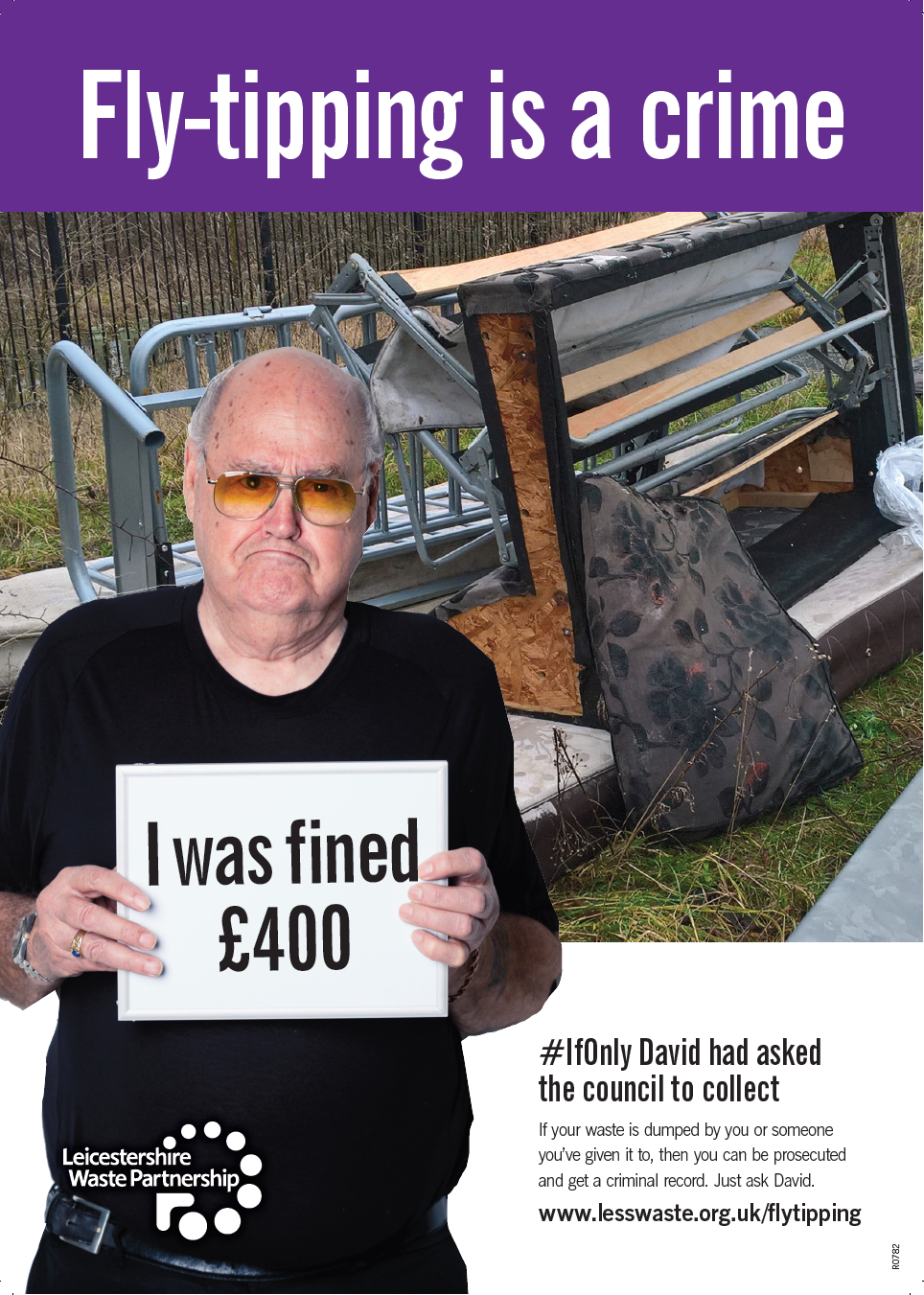
#IfOnly David had asked the council to collect his bulky waste. He was clearing out some furniture and dumped it in a quiet lane. He was caught on CCTV installed by the Council to catch fly-tippers. He was fined £400 for fly-tipping plus another £100 to clear it up. #IfOnly David had taken 5 minutes he could have booked a bulky waste collection through his council and saved himself some time and £500.
Your local council can help you get rid of large items. Details of your council’s collections for bulky items can be found here.
Leicestershire councils deal with 12,000 fly-tipping incidents per year. If you fly-tip your waste then you can be prosecuted and get a criminal record. Just ask David.
Sue’s Story
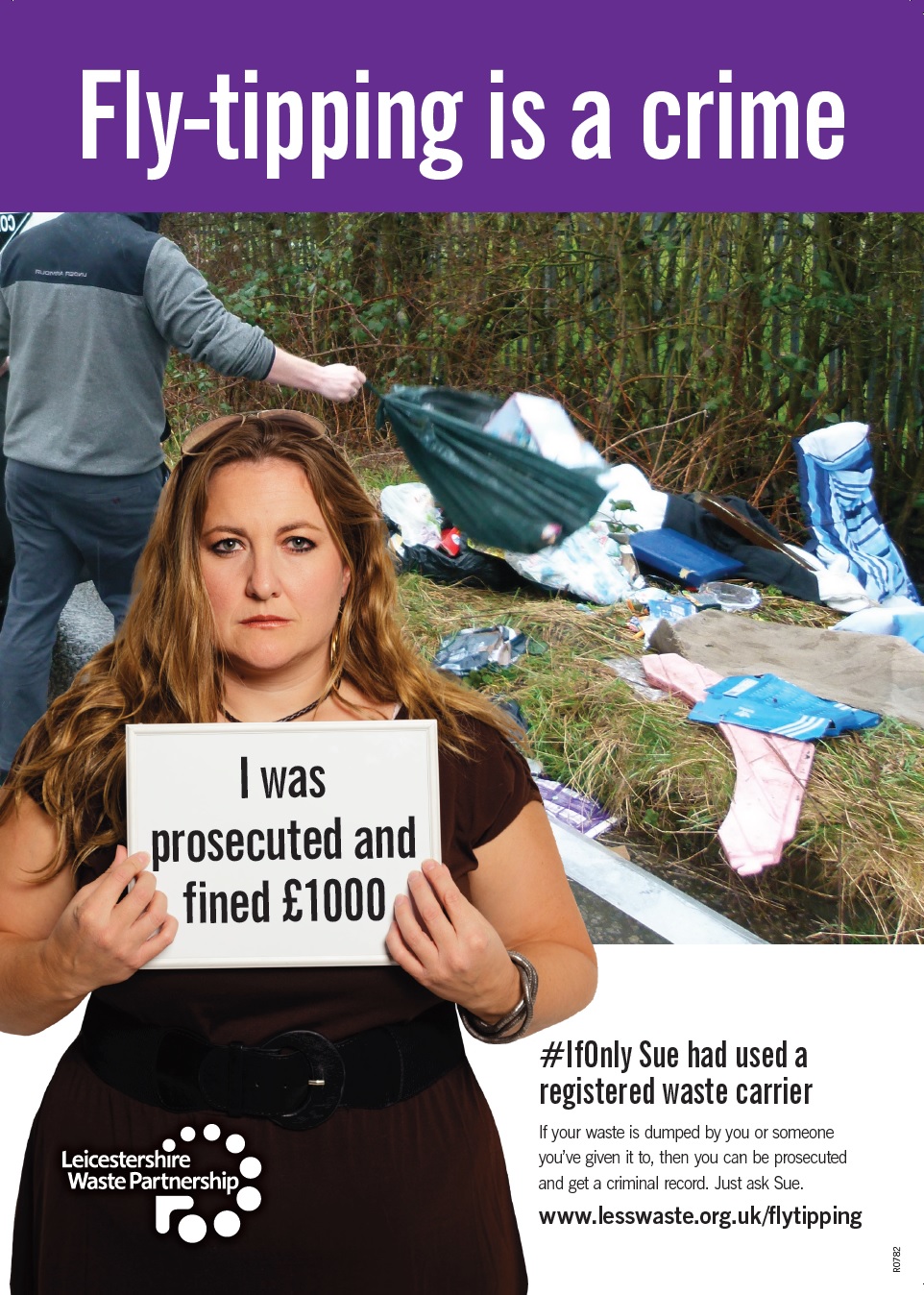
#IfOnly Sue had checked out the person taking her waste. She used social media to find someone to remove her waste for her and it turns out that they weren’t licenced and fly-tipped her waste. Sue was prosecuted and fined £1,000
If you are asking anyone to remove and dispose of your waste on your behalf, such as a tradesperson that has carried out some work for you, then you have a responsibility to check that they are a Registered Waste Carrier. Ask for their license number and check it here public register of waste carriers. Alternatively you can call 03708 506 506
If your waste ends up being fly-tipped and you aren’t able to show that you took reasonable steps to prevent it then you could be prosecuted and fined.
Leicestershire councils deal with 12,000 fly-tipping incidents per year. If your waste is dumped by you or someone you’ve given it to, then you can be prosecuted and get a criminal record. Just ask Sue.
Report It
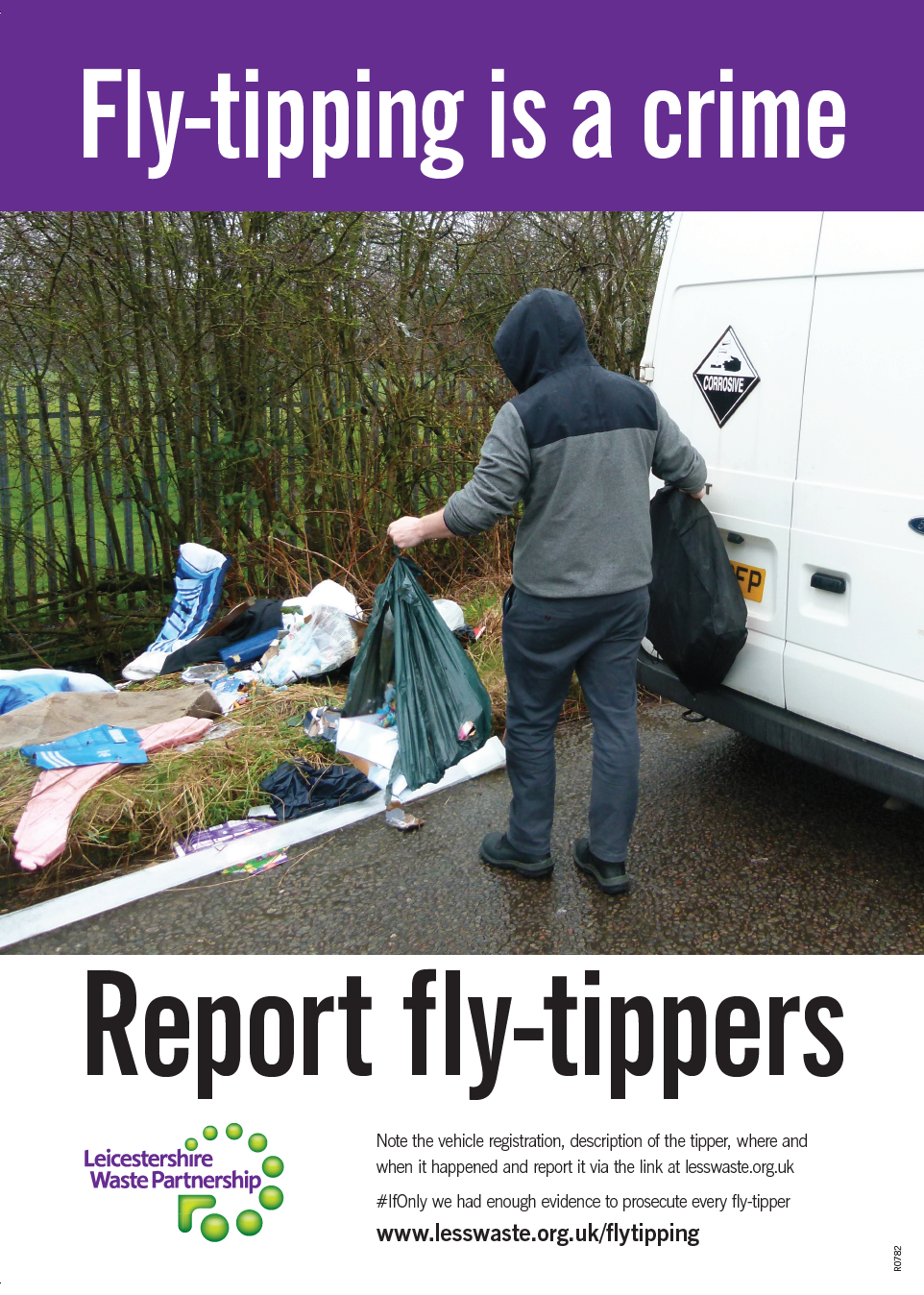
#IfOnly everyone would report fly-tippers. Fly-tipping is a huge problem in the city and county, with Leicestershire councils dealing with 12,000 incidents per year. If your waste is dumped by you or someone you’ve given it to, then you can be prosecuted and get a criminal record.
You can report an incident to your local council to investigate. Witnesses are vitally important in enabling action to be taken against people who fly-tip waste, so please do report any incident that you witness as soon as possible. Information that is useful includes:
- Time and date of incident
- Description of person(s) dumping waste
- Description of vehicles involved, including registration numbers
- Description of the waste dumped (do not rummage through the waste yourself as there may be hazardous or sharp items among the waste)
- Photographs can also be very useful, but only if it is possible to obtain them safely
Together we can stop this problem and clean up our environment.










